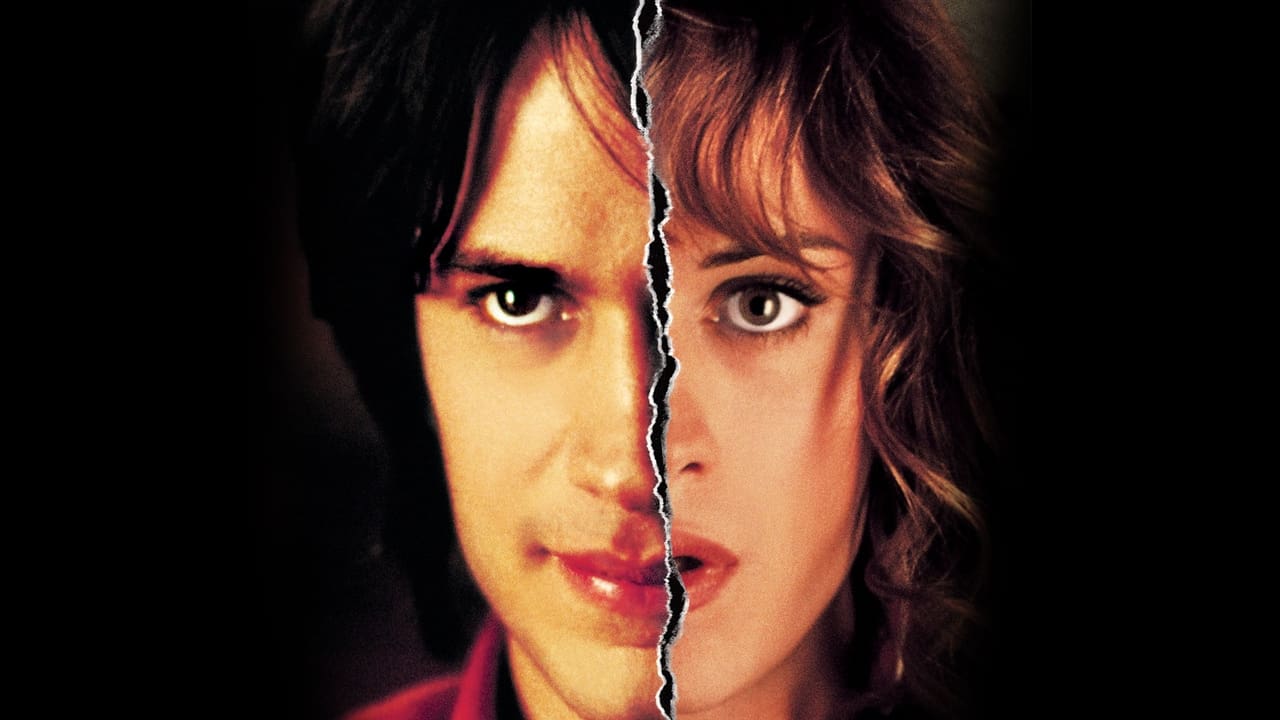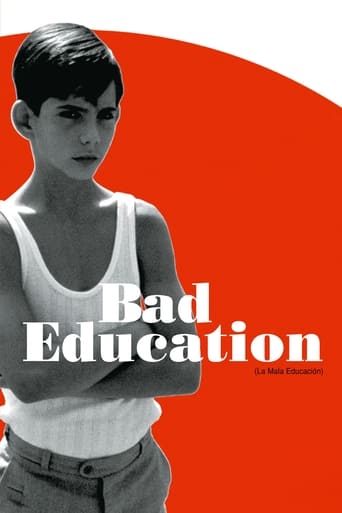

What a waste of my time!!!
... View MoreThis is How Movies Should Be Made
... View MoreSelf-important, over-dramatic, uninspired.
... View MoreOne of the best movies of the year! Incredible from the beginning to the end.
... View MoreI had a very faint idea of the premise of Bad Education. I had read the IMDB plot summary that said it was about the impact of sexual abuse on the lives of two kids. Well..... It is technically kind of true but in no way a true representation of what's in store for you.As soon as you start getting the hang of things, the movie pulls the rug from under you. It suddenly switches genre. But it's not jarring. Rather everything flows organically from the characters. I think that's the best thing about this movie. There is ingenuity in the way the story is presented. There are plenty surprises here and it's better to find out for yourself.In spite of all this it is unmistakably a Pedro Almodóvar movie. If you have seen his movies you know the way his characters are, the way his characters talk and of course sex. There is a lot of sex in this one. And of course there is Javier Cámara. Speaking of actors, Gael García Bernal gives a great performance with a role that is challenging and difficult. It's not as easy as he makes it look.Definitely give this one a go.
... View MoreOnce again Pedro Almodovar has produced a masterpiece that is arguably his most personal film to date. As is typical of much of Almodovar texts, controversial themes are prominent; hard drug abuse, transvestism and sexual abuse are all dominant in 'Bad Education', meaning this may be a tough watch for many. However, for any Almodovar fan this is an essential watch.The film focuses on the relationship between two men; Ignacio (Gael García Bernal) and Enrique (Fele Martínez)and opens in the 1980's with the pair as young adults. Enrique is an aspiring film director and receives a visit from Ignacio for the first time in over fifteen years. This is a dark tale detailing the meeting of the pair during there time at a Catholic school during the 1960's and the sexual abuse they both suffered at the hands of one of the priests. Through a series of flashbacks and scenes from a story Ignacio has written about there childhood, the film explores various times in the pairs life. Due to the excellent twists in the film it is impossible to go into to much detail but the film rapidly evolves from a simple coming of age tale into a stylish modern thriller that plunges the viewer into constant confusion and contradictions.In terms of the cast Garcia Bernal is an actor at the top of his game, playing no less than five characters within the film. The multiple film references within the text and the depiction of the boys discovering both a love of each other and of cinema during the 60's are a strong indication of an autobiographical element to the film. It also has to be said there is some gorgeous cinematography during the film, in particular when the priests are playing football with the boys and a scene when Ignacio dives over Enrique in a pool.
... View MoreAs a relatively impartial observer (not homophobic, not homosexual), I found this to be an outstandingly dull film. In truth, the acting isn't bad and the plot line is cleverly constructed but what is it about and do we really care? There's a vague reference to the pederasts of the Catholic Church in there which might have been interesting if fully explored but it says nothing about the relationship at all and simply focuses on a theme of misplaced love. It's not predictable either as the plot is nicely constructed around a film that has been inspired by the events in the pasts of the protagonists. Yet it says nothing, does nothing and continues at a leaden pace, neither intriguing nor entertaining. Much as I love my gay friends, it reflected what is for me at least the vacuity of the homosexual lifestyle...surely it can only be appreciated by gay people?!?!
... View MoreBad Education by Pedro Almodovar is a film that has a distinct love of films. The main character was Enrique Goded is a film director looking for a story for his next film when he is stopped by his first love, Ignacio, who gives him a script based on their childhood in a Catholic school. The script is visually shown throughout the film without getting too confusing or muddled in Their first moments together also take place in a movie theater. Despite the tricky plot the film doesn't get too complicated to follow although it does seem to get away from Almodovar a bit at the end. It starts out as a tragic love story in the and slowly becomes a film noir. There is even recognition of this when two of the characters exit a theater show film noirs and one of them comments "It's like they were talking about us." At this point of the film it turns into something else but not necessarily for the worst. Gael García Bernal's role is an intricate one. He plays several characters (one within another one) bravely and with distinction between one another. Although he is more of an antagonist than the protagonist, he is the one with the most screen time and carries the film. Fele Martínez (Enrique) also is fantastic, although he has little to work given as he has the less showy part.Almodovar uses interesting, elaborate transitions for certain scenes. Partcularly, they are used to guide the viewer into (and sometimes out of) the screenplay within the movie. And while the subject matter is of child molestation in the Catholic Church, it is of a particular story of this one man and this one priest. There is not much accusation of condescension. There also was no touching on homophobia (although one or two of the characters were in the closet). This may be Almodovar's way of making homosexuality conventional as heterosexuality in this film.
... View More